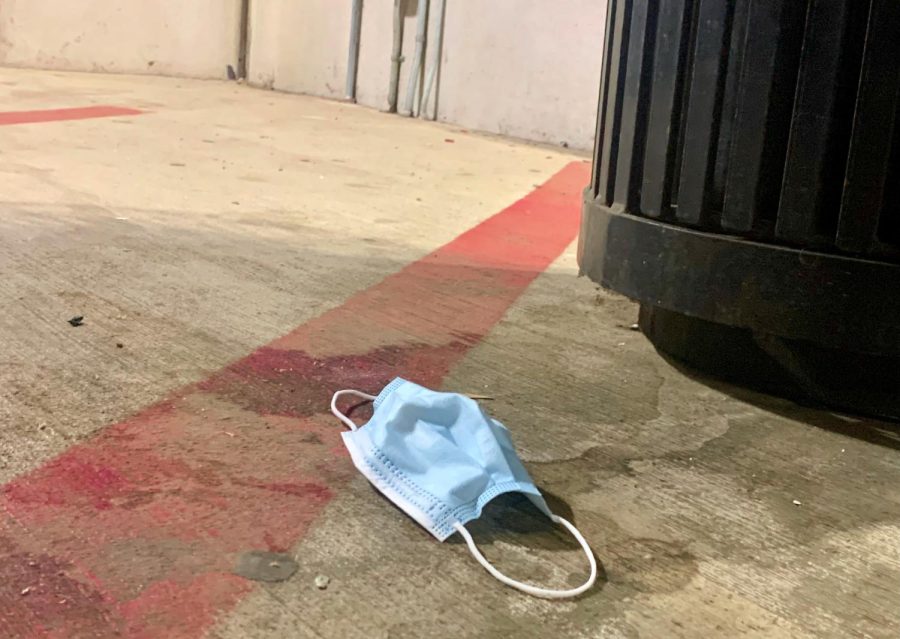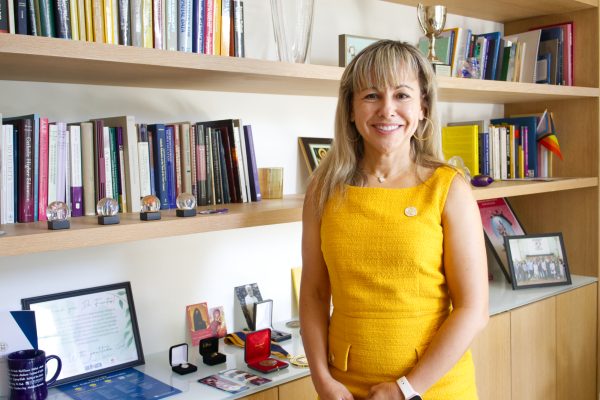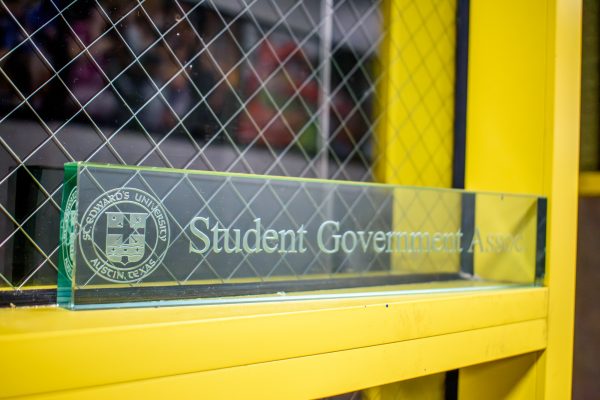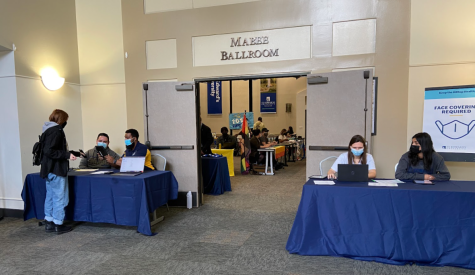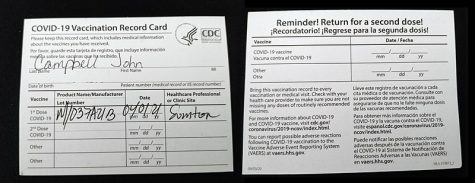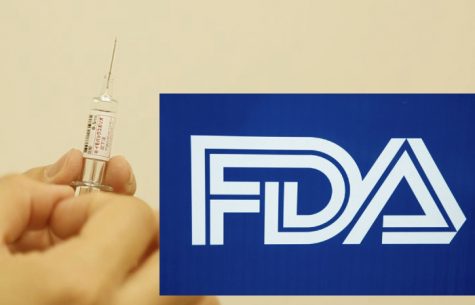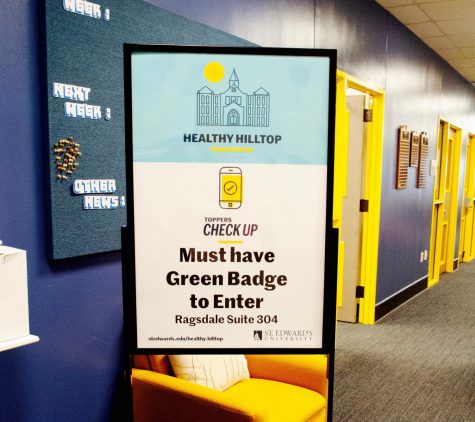Organizations respond to increase in plastic pollution on campus
Claire Lawrence / Hilltopviews
One of the masks littered throughout the parking garage on campus.
Over 129 billion personal protective equipment (PPE) masks are made every month and half end up in the ocean. Some common items polluting the ocean are plastic bottles, grocery bags, and, now, PPE masks, causing a rapid increase in plastic pollution.
It’s been almost two years since the initial COVID-19 outbreak and some are still trying to protect themselves from the virus by wearing a PPE mask. After it has been used, some improperly dispose of the mask, and masks are often seen littering the ground. This waste eventually ends up in the oceans, affecting wildlife and spreading toxins.
“Since marine debris is completely caused by people, that also means that we have the ultimate power and responsibility to be the solution,” Shanelle Naone, a Pacific Islands Region Communications and Outreach Coordinator of NOAA Marine Debris Program, said.
Before the pandemic began, plastic pollution was harming the ocean and threatening wildlife. This ongoing problem is causing an increase in sea animals consuming plastic as food. For instance, a sea turtle will mistake a facemask, which is often made with polypropylene plastic, (which is used in a wide variety of applications like plastic packaging, plastic parts for machinery, fibers, and more) for a jellyfish.
“Marine debris does pose many risks to animals,” Naone said. “Many marine debris items can impact wildlife through ingestion. When an animal swallows debris, it can block its stomach, puncture the inside of their bodies with sharp edges, and even create a false sense of being full. This can make the animal ill or cause it to starve.”
This can lead to digestive issues or even death, and contaminated microplastics could expose organisms to high concentrations of toxins. If action isn’t taken now, negative consequences for wildlife will become irreversible and according to World Wildlife Fund (WWF) plastic is expected to outweigh all the fish in the sea by 2050.
In 2020, an estimated 1.56 million PPE masks entered the ocean. Every day the numbers keep growing and if left untreated, it will take one mask about 450 years for it to decompose in nature, continuing to kill wildlife and hurting humans in the long run.
Students for Sustainability pollution combat on campus
Organizations, community clubs, and environmental activists are aware of marine debris and how it affects climate change. They are making positive environmental changes to reduce the numbers to make a global impact. At St. Edward’s University, Students for Sustainability (SFS) is one of the largest organizations on campus and the leading voice on sustainability. It is a chartered organization entirely student-run and is dedicated to advocating for a more sustainable campus.
When the university mandated PPE masks indoors, more facemasks were spotted laying around campus grounds. On March 7, the university made it optional to wear a mask indoors.
“We’ve seen an increase in disposable masks around campus,” Ethan Tobias, SFS President and Sustainability Intern, said.
SFS is finding solutions by increasing the number of trash-pick-up events both on campus and at Blunn Creek, where the rain-washed waste and plastic pollution ends up–doing this will help combat the issue.
“We try to host as many events as possible that deal with sustainability and environmentalism,” Tobias said. To attack the root of the problem we are actively advocating for a switch from single-use plastic to either compostable options or more circular products. Just recently, we have been able to convince Bon Appétit (the company that manages on-campus dining) to switch from plastic bags to compostable ones.”
SFS is encouraging their community to help with monthly trash pick-up events and recycle plastic waste in disposal trash cans around campus. They also suggest wearing eco-friendly masks and recommend to others who wear PPE masks to cut the straps of face masks’ ear loops before throwing them away in the garbage.
Student affects
SFS is promoting its activism around campus and through social media, but how many students are shocked that PPE masks are causing an increase in plastic pollution?
“It doesn’t shock me,” senior Sarah Fitzgibbons said. “I feel like in times of intense crisis, things we usually consider high priorities tend to be shelved. Like if I’m concerned about my imminent safety, I care less about my impact on the environment. I’m not saying I don’t care about the environment, but it’s human nature to prioritize yourself.”
The majority of students have seen an increase in PPE masks disposal on-campus grounds. Half expressed feeling bothered and knowing the long-term effects it has on the environment. The others expressed their concerns about not knowing how to help the situation because they don’t want to risk being affected by picking up one.
“I’ve noticed PPE masks lying on the ground just about everywhere I go,” senior Courtney Davila said. “I do find it gross and quite annoying. Littering has always made me uneasy, not only does it make our environment look trashy, but it also causes hurt to our environment and the creatures in it.”
Texas statewide mask mandates
On March 4, Austin-Travis County moved to stage 2 of risk-based guidelines, and on March 7, St. Edward’s University updated its COVID-19 guidelines by making PPE masks optional to wear.
“Please be considerate of campus community members who may still choose to wear face coverings or may not be comfortable around others who are not wearing face coverings. Individuals may not independently require face coverings for campus events, gatherings, or courses,” a statement on the university’s website said.
It’s been over a month since the mandate was lifted and half the population is still choosing to wear a mask.
The pandemic causes an increase in plastic pollution by affecting the oceans, wildlife, and spreading toxins. People need to know how to pivot to sustainability, responsibly dispose of their waste and recycle because these actions are only half the battle in reducing plastic pollution and saving the environment.

